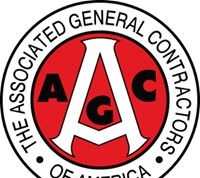Borrowers of color, low-wealth families still underserved by private market
WASHINGTON, D.C. – September 23, 2015 – (RealEstateRama) — Despite a number of industry predictions, new data from the Home Mortgage Disclosure Act (HMDA) report today revealed that Dodd-Frank’s mortgage protections and the Consumer Financial Protection Bureau’s related new mortgage regulations did not produce a decrease in mortgage accessibility for homebuyers.
The data also show that borrowers of color and families with low-to-moderate incomes continue to be underserved in the mortgage market, especially by lenders who sell loans to Fannie Mae and Freddie Mac. For these borrowers, access to affordable mortgages is very limited. In addition, borrowers of color and low-to-moderate-income homebuyers that do access mortgage loans to buy a home overwhelmingly rely upon government-backed mortgages that come with higher rates and fees than other loans.
“It is encouraging to see that setting high standards for assessing a borrower’s ability to repay the loan has, in fact, contributed to improving the overall housing market, making more loans available to a wider cross-section of consumers,” says Nikitra Bailey, executive vice president with the Center for Responsible Lending. “Yet even with these improving numbers, too many African-American and Latino borrowers remain locked out of the opportunity to buy a home. These consumers of color are restricted in their ability to secure more affordable mortgage loans.”
Highlights from the 2014 HMDA data include:
- African-Americans received just 142,000 out of 2.8 million home loans made in the United States (5.2 percent), a slight increase from their share in 2013. Latino borrowers received 216,000 (7.9 percent) of all home loans – up slightly from the 7.3 percent received in 2013.
- Low-and moderate- income borrowers received fewer home purchase loans in 2014 (738,990), compared to those in 2013 (742,660), or in 2012 (763,190).
- African-Americans, Latinos and low and moderate-income borrowers continue to be predominantly served by government-backed loan programs, rather than by the conventional loans backed by Fannie Mae and Freddie Mac –even though lenders’ cost of funds remain at or near historically low rates. The HMDA data also shows that these government-backed loans were significantly more expensive than conventional loans.
- Only 45,544 conventional loans were made to African-Americans and 87,570 were made to Latino borrowers in 2014.
- Government-backed loan programs produced 96,780 (9.7 percent) purchase loans to African-Americans. Latino homebuyers received slightly more with 128,653 (12.9 percent). A total of 370,973 loans were made to low-or-moderate-income borrowers (37.1 percent).
“These stark disparities in mortgage lending to borrowers of color and low-wealth families occur to the very people hardest hit by abusive lending and the foreclosure crisis. These disparities also come at a time when our nation’s demographics are changing,” said Bailey. “The future health of our mortgage market, a major driver of the economy, relies on closing these gaps.”
“By 2025, the population will be even more diverse with households of color representing nearly half of all first-time homebuyers,” continued Bailey. “Lenders and Fannie Mae and Freddie Mac have a duty to serve more than just consumers with pristine credit and high levels of wealth. Homeownership must be available to all credit-worthy consumers so they can pursue their own American Dream”.
View our in-depth analysis of the 2014 HMDA data.
For more information, or to arrange an interview with a CRL spokesperson on this issue, please contact Charlene Crowell or 919-313-8523.
###
About the Center for Responsible Lending
The Center for Responsible Lending is a nonprofit, nonpartisan research and policy organization dedicated to protecting homeownership and family wealth by working to eliminate abusive financial practices. CRL is affiliated with Self-Help, one of the nation’s largest community development financial institutions.
For more information, or to arrange an interview with a CRL spokesperson on this issue, please contact Charlene Crowell or 919-313-8523.













